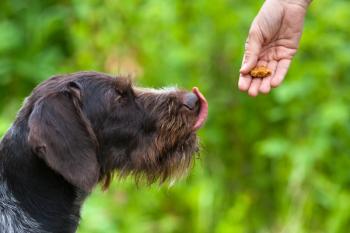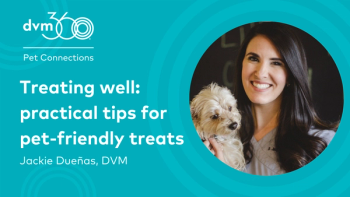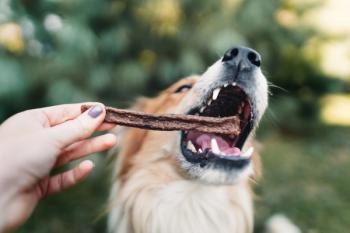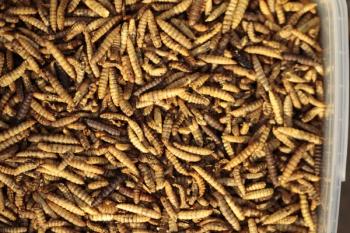
Mind Over Miller: What did nature intend?
Dr. Robert M. Miller looks at whether today's feeding practices fit the body's needs.
When I found myself in a practice in the 1950s, which included an immense variety of exotic species, I felt quite inadequate. In a town that included a large private zoo serving the TV and movie industries in adjacent Los Angeles County, an elephant training center, a camel breeding farm, reptile and bird dealers, a circus headquarters (right in back of my hospital), and, ultimately, an hour's drive away, the dolphins and other sea mammals in Santa Monica's Pacific Ocean Park, I was expected to have medical and nutritional expertise to serve all of these species.
Robert M. Miller, DVM
My education had involved nine domestic species, so I was presented, daily, with formidable and intimidating challenges. Placing innumerable telephone calls to zoo veterinarians all over the world was usually an exercise in futility. It was a case of the blind leading the blind. The scientifically proven information was just not yet available. Colleagues in exotic-animal practice often relied on the lore offered by zookeepers, wild animal trainers, and sincere but technically inept animal lovers. It was different from today, when a wealth of carefully researched data are readily available.
So I did what my colleagues in exotic-animal practice did: I extrapolated from our knowledge and experience handling domestic species. Although this was often adequate, it also led to some serious mistakes.
Eventually, I started to think for myself. Take nutrition, for example. It was accepted dogma that primates—the apes and monkeys—should be fed only fruits and vegetables. But I noticed that their teeth were identical to ours, with the addition of very prominent canine teeth. "Cage paralysis" was a prevalent disease in primates. It was generally assumed to be caused by inadequate exercise. Ultimately, it was found to be nutritional secondary hyperparathyroidism due to a calcium-deficient diet—a primarily fruit diet.
I told my chimpanzee clients, "Their teeth tell me that they are omnivorous. Add animal protein to their diet, such as hard-boiled eggs, cheese, and a bit of hamburger." Some of my clients listened to me; others did not. In 1960, Jane Goodall reported that chimps in the wild hunted and ate meat. They even practiced cannibalism.
Exotic cats were universally fed butchered meat, and bone disease was epidemic in those animals because of insufficient calcium. I told my cat clients, "Cats in the wild do not eat meat. They eat other animals, including the blood and bone, which are rich in calcium."
In our county, we had the world's largest egg farm, with more than three million laying hens. There was a normal daily mortality rate. I encouraged my clients who owned big cats to arrange to pick up these dead hens, pluck their feathers, and feed them whole as a supplement to their cats' usual diet of butchered horse meat or livestock meat. Those clients who listened to me had good results.
Of course, today, commercially prepared carnivore diets are available for zoo animals, just as they are for our pets.
This concept of what nature intended certainly applies to domestic animals. Did nature intend for dogs to survive on vegetarian diets? Did nature intend for horses to consume large quantities of cereal grains every day? Did nature intend for parrots to eat only sunflower seeds, or for turtles to be fed only ant eggs? These practices persist.
And the concept applies to our species, too. Did nature intend for children to consume endless quantities of sugar, as so many children do in soda pop, ice cream, candy, and cake? And what about us, their parents? Do we live as nature intended for our species nutritionally, environmentally, socially, and physically?
As I describe in my book Yes, We Treat Aardvarks, my experiences in exotic-animal practice were a priceless part of my professional life and added so much interest to an already diverse domestic-animal practice.
Robert M. Miller, DVM, is an author and a cartoonist, speaker, and Veterinary Medicine Practitioner Advisory Board member from Thousand Oaks, Calif. His thoughts in "Mind Over Miller" are drawn from 32 years as a mixed-animal practitioner. Visit his website at
Newsletter
From exam room tips to practice management insights, get trusted veterinary news delivered straight to your inbox—subscribe to dvm360.






